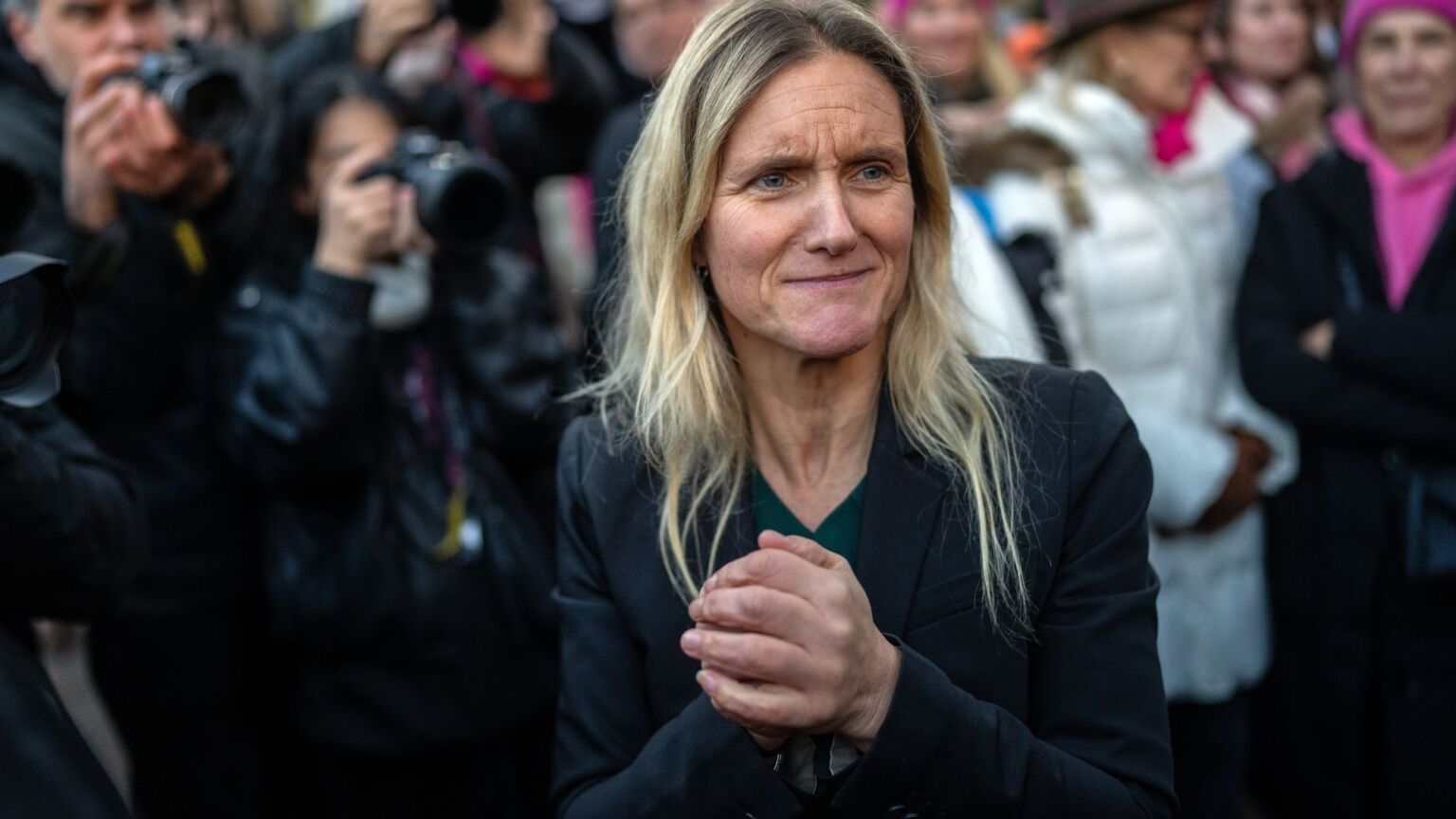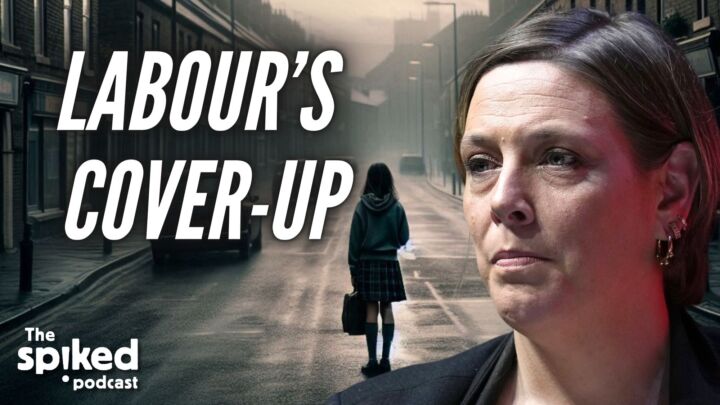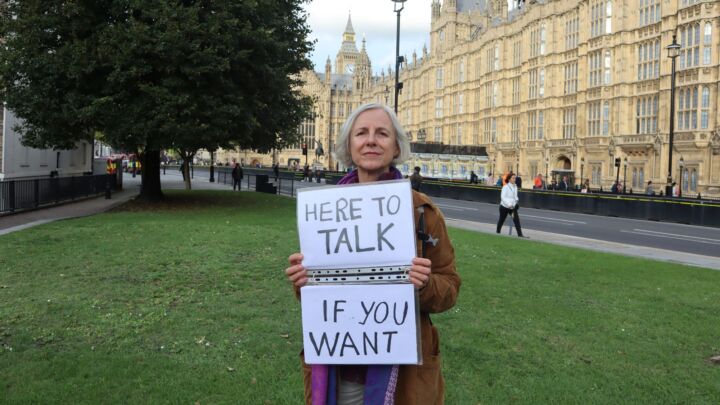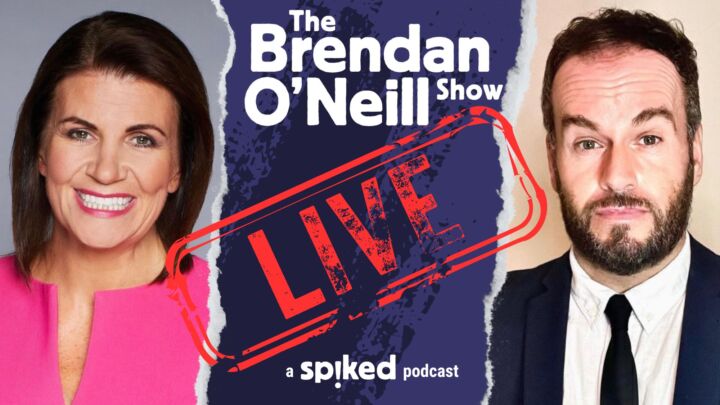Kim Leadbeater’s for-profit suicide service
Her ‘assisted dying’ bill has become a moral horror show.

Want to read spiked ad-free? Become a spiked supporter.
The Terminally Ill Adults (End of Life) Bill, which seeks to legalise assisted suicide in England and Wales, will get its third and final reading in the House of Commons later this month, now that the committee stage has come to a close.
The nine-week committee process was supposed to be a chance to interrogate and scrutinise the bill. But now that it’s over, MPs are none the wiser as to how the government will deliver an assisted-suicide service, who will be eligible for it or how the vulnerable will be protected from being coerced into killing themselves.
Anyone who has followed the bill’s passage through the committee stage will have been gobsmacked by what they saw, particularly from Kim Leadbeater, the Labour MP sponsoring the bill. Even some supporters of assisted suicide have felt compelled to criticise her tactics and the bill’s poor drafting. The Times, which has supported past attempts to legalise so-called assisted dying, described the bill as ‘not fit for purpose, its provisions a mess, and its journey through parliament an unconscionable waste of time’.
Leadbeater has clearly been stung by the backlash. In a letter to MPs this week, she said: ‘I completely respect any MP who fundamentally objects to the principle of assisted dying, whether from a religious standpoint or any other. But what has been frustrating at times is to see opponents of the bill suggest that it has been debated and amended in a way that is anything other than thorough, rigorous and professional.’
In truth, the process has been anything but thorough, rigorous and professional. From the outset, Leadbeater ensured the committee was stacked with MPs who back assisted suicide, with 14 proponents and just nine opponents. Opposing MPs who had the most relevant experience were deliberately excluded. Such as Conservative MP Ben Spencer, a psychiatrist with a master’s in mental-health law and a PhD on decision-making capacity, and Labour MP Rachael Maskell, a former member of the Health Select Committee with 20 years of experience working in the NHS.
Just about every reasonable amendment to make the bill safer was rejected by the committee. Several amendments that would have prevented those suffering from eating disorders from accessing assisted suicide were all defeated, despite warnings from charities that disorders like anorexia would meet the bill’s definition of a terminal illness. Research shows that, worldwide, at least 60 mostly young women have been granted euthanasia or an assisted suicide on the grounds of anorexia alone. Tragically, it seems the committee agree with Labour MP Simon Opher, who told his colleagues not to ‘get too hung up on anorexia’.
Any amendment that might even slightly slow the process of approving an assisted suicide, or might make a patient reconsider, was rejected. One proposal was that patients be required to meet a palliative-care specialist. But the UK government’s minister for care, Stephen Kinnock, raised concerns that this would ‘increase demand’ for palliative care, as if proper end-of-life care were something to be jealously rationed, rather than a right.
MPs also rejected an amendment that would have required doctors to simply ask why a patient is seeking assistance to end his or her life. This might be an opportune moment to detect if, say, coercion is playing a role in someone’s decision. But no.
Also voted down was an amendment that would have blocked doctors from raising assisted suicide with anyone under the age of 18. According to Leadbeater, ‘We shouldn’t prohibit open conversation with terminally ill young people… This creates openness.’
Leadbeater and Co even refused an amendment that would have prevented private companies from potentially profiting from administering assisted suicides. Kinnock said he was ‘comfortable’ with for-profit companies involving themselves in a new suicide service.
Most notoriously, the much-vaunted safeguard of requiring a High Court judge to approve each assisted death was removed by Leadbeater during the committee stage – even though around 60 MPs said this assurance had persuaded them to vote for the bill at its second reading in November. Now, instead of a neutral, independent judge, assisted deaths would be signed off by a panel made up of a psychiatrist, a social worker and a retired legal professional. As Tory MP Danny Kruger has noted, such panels would inevitably be filled with assisted-suicide enthusiasts. Who else would volunteer?
Moreover, the committee wouldn’t even be required to meet with or ask questions of the applicant and would have no real legal power to prevent a wrongful death. Staggeringly, Leadbeater tried with a straight face to call her new proposal ‘judge-plus’, even as she was removing the requirement for a judge to approve each assisted suicide.
Overall, more than 500 amendments were considered by the committee. Less than one in five of those accepted came from opponents of the bill. That alone ought to ring alarm bells. But even more worrying is what has been left unsaid. Indeed, the bill itself still says nothing about how suicide services will be delivered or regulated. Instead, it grants sweeping powers to ministers through a so-called Henry VIII clause. This means key details can be decided by a minister without parliamentary approval.
A vote for this bill at third reading means potentially opening the door to a profit-driven, privatised suicide service with no viable safeguards to prevent wrongful deaths. MPs cannot say they haven’t been warned.
Kevin Yuill is emeritus professor of history at the University of Sunderland and CEO of Humanists Against Assisted Suicide.











Comments
Want to join the conversation?
Only spiked supporters and patrons, who donate regularly to us, can comment on our articles.